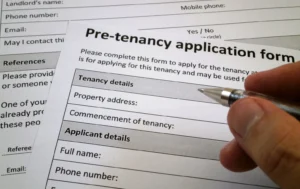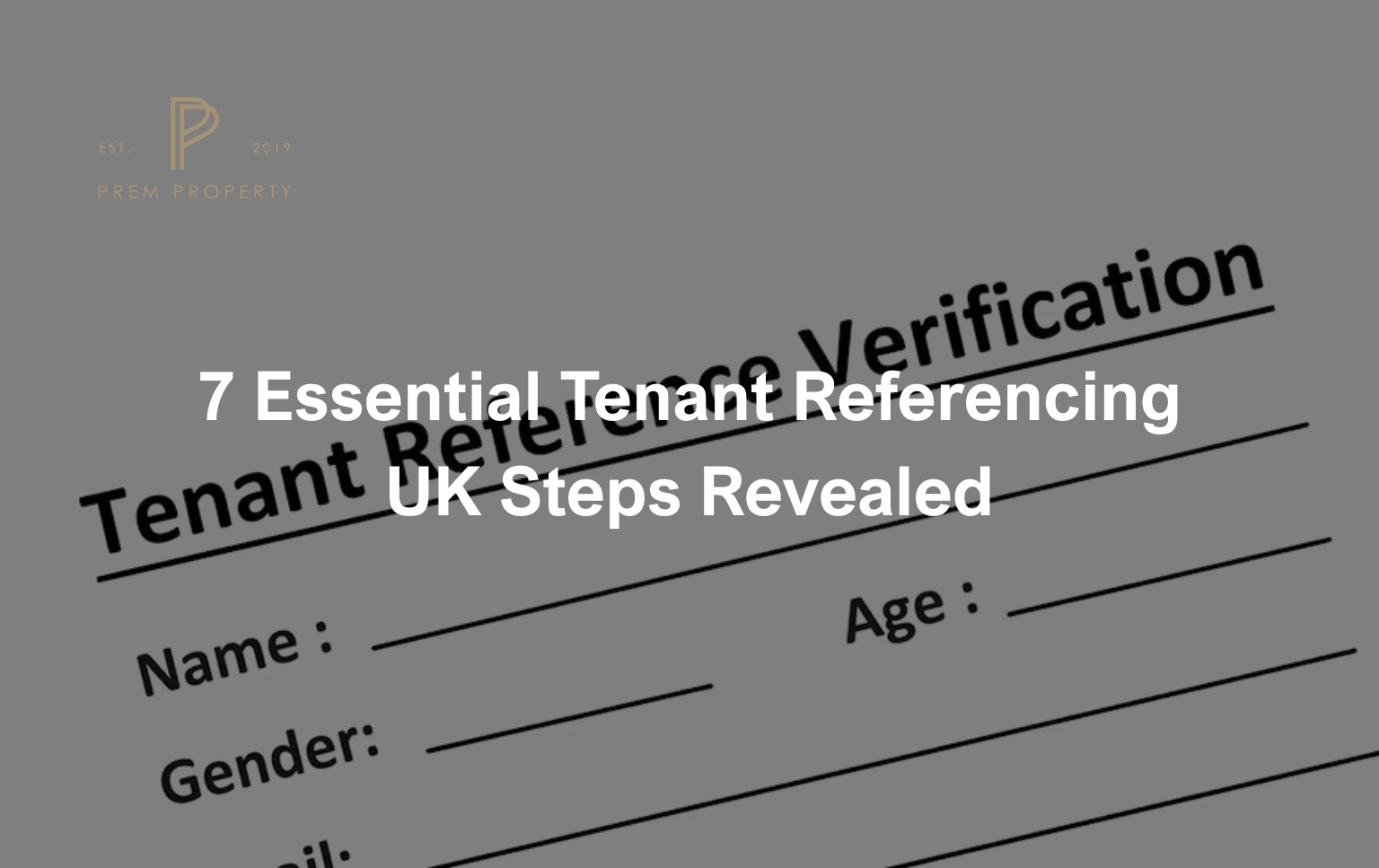The landscape of property letting in the United Kingdom has undergone significant transformation in recent years, and tenant referencing has emerged as an indispensable safeguard for landlords nationwide. With rental arrears climbing and legislative changes reshaping the sector, understanding how to conduct thorough tenant referencing is no longer optional—it’s essential for protecting your investment.
What Is Tenant Referencing in the UK?
Tenant referencing is a comprehensive vetting process that landlords and letting agents use to assess whether a prospective tenant is suitable for their property. This systematic evaluation examines a potential tenant’s financial stability, rental history, employment status, and creditworthiness before a tenancy agreement is signed.
In today’s challenging rental market, where the average UK rent reached £1,276 per month in 2024 according to the Office for National Statistics, ensuring you select reliable tenants has become paramount. The process involves collecting and verifying various documents and conducting multiple checks to build a complete picture of the applicant’s suitability.
Why Tenant Referencing UK Matters More Than Ever
The importance of robust tenant referencing cannot be overstated. Recent data from Homelet’s Rental Index reveals that tenant arrears cost UK landlords approximately £9 billion annually. Furthermore, with the Renters Reform Bill proposing the abolition of Section 21 evictions, removing problematic tenants will become significantly more complex and time-consuming.
Professional tenant referencing serves multiple purposes beyond risk mitigation. Many buy-to-let mortgage lenders and insurance providers now mandate comprehensive reference checks as a condition of their products. Without proper referencing, you could inadvertently invalidate your insurance cover or breach your mortgage terms.
The 7 Essential Steps of Tenant Referencing
1. Identity Verification
The first critical step involves confirming your prospective tenant’s identity. This requires examining valid photographic identification such as a passport or driving licence. Under UK law, landlords must verify identity as part of Right to Rent checks, which became mandatory in England in 2016.
Identity verification protects against fraud and ensures the person applying is who they claim to be. Cross-reference the photograph with the applicant and verify that the document hasn’t expired.
2. Right to Rent Checks
This legal requirement is non-negotiable for landlords in England. The Home Office mandates that landlords verify a tenant’s immigration status before allowing them to rent a property. Failure to conduct these checks can result in civil penalties of up to £3,000 per tenant or, in severe cases, criminal prosecution.
Acceptable documents include British passports, settled or pre-settled status documentation, and valid visa stamps. For non-British nationals, you must verify their immigration status using the Home Office online checking service. Keep copies of all documents for the duration of the tenancy plus one year.
3. Employment and Income Verification
Financial stability is the cornerstone of successful tenancies. Request recent payslips (typically the last three months) and contact the employer directly to confirm employment status and salary details. The general rule of thumb is that a tenant’s annual income should be at least 30 times the monthly rent, though some landlords prefer a ratio of 36 times for additional security.
For self-employed applicants, request two years of accounts or Self Assessment tax returns. Bank statements covering three to six months provide additional insight into regular income patterns and financial management habits.
4. Credit History Assessment
A credit check reveals crucial information about a tenant’s financial behaviour. This examination uncovers County Court Judgements (CCJs), Individual Voluntary Arrangements (IVAs), bankruptcy declarations, and existing debts. Remember that you must obtain written consent from the applicant before conducting a credit check, as stipulated by the Data Protection Act 2018 and UK GDPR. Credit checks typically cost between £10 and £30 per applicant and provide invaluable insights into payment reliability.
5. Previous Landlord References
Speaking directly with previous landlords offers genuine insights that documents cannot provide. Ask specific questions about rent payment punctuality, property condition upon vacating, any disputes or complaints, and whether they would rent to this tenant again.
Be cautious if an applicant is reluctant to provide previous landlord details or only offers a reference from their current landlord—they may be withholding problem areas in their rental history. Ideally, obtain references from the two most recent landlords to identify patterns of behaviour.
6. Affordability and Bank Statement Analysis
Examining bank statements provides a window into spending habits, financial discipline, and income stability. Look for regular salary deposits, manageable outgoings, and sufficient funds to cover the deposit and first month’s rent without depleting savings entirely.
Red flags include frequent returned payments, gambling transactions, evidence of other substantial debts, or erratic income patterns. According to research by the Resolution Foundation, 38% of private renters spend more than 30% of their income on housing costs, highlighting why affordability checks are crucial.
7. Character and Personal References
Whilst less critical than financial checks, character references from employers or professional contacts provide additional context about reliability and trustworthiness. These references complement the formal documentation and offer reassurance about the tenant’s character.

How Long Does Tenant Referencing Take?
The timeframe for completing comprehensive tenant referencing typically ranges from three to seven working days, depending on the complexity of the application and the responsiveness of third parties. Delays often occur when employers are slow to respond or when applicants have complex financial situations requiring additional scrutiny.
Many professional referencing companies now offer expedited services that can deliver results within 24 to 48 hours, though these usually come at a premium cost.
The True Cost of Inadequate Tenant Referencing
The financial implications of accepting unsuitable tenants extend far beyond missed rent payments. Consider this scenario: a tenant paying £1,500 monthly defaults six months into a twelve-month tenancy. Between lost rental income (£9,000), legal fees for eviction proceedings (£2,000 to £5,000), property damage repairs (£2,500 average), and void periods whilst re-letting (£3,000), you could face losses exceeding £16,500 from a single poor referencing decision.
Research by the National Residential Landlords Association indicates that nearly one in five landlords experienced rent arrears in 2023, with the average arrears lasting 4.3 months. These statistics underscore why thorough referencing is a wise investment rather than an unnecessary expense.
Legal Obligations and Compliance
UK landlords must navigate various legal requirements during the referencing process. The Tenant Fees Act 2019 restricts the charges landlords can pass to tenants, limiting referencing fees in most circumstances. Additionally, the Data Protection Act 2018 governs how you collect, store, and use tenant information.
Discrimination laws mean you must apply referencing criteria consistently across all applicants. You cannot refuse a tenant based on protected characteristics including age, disability, gender reassignment, marriage status, pregnancy, race, religion, sex, or sexual orientation. Your referencing process should be objective, standardised, and evidence-based.
Professional Referencing Services vs DIY Approaches
Landlords face a choice between conducting references themselves or engaging professional services. DIY referencing costs less (typically £20 to £50 for credit checks) but demands significant time and expertise. You must ensure compliance with all legal requirements whilst maintaining comprehensive records.
Professional referencing companies charge between £20 and £100 per tenant but provide thorough, compliant checks backed by insurance and expertise. These services maintain detailed audit trails, reducing your liability and ensuring consistency. For portfolio landlords managing multiple properties, professional services often prove more cost-effective when time investment is factored in.
Red Flags to Watch During Tenant Referencing
Experienced landlords recognise warning signs that merit additional scrutiny:
- Reluctance to provide complete information or documentation
- Significant gaps in employment or rental history
- Multiple CCJs or recent bankruptcies
- Evidence of previous evictions
- Inconsistencies between verbal statements and documented evidence
- Pressure to skip referencing steps or expedite the process
- Previous landlords who give lukewarm or qualified recommendations
- Bank statements showing financial instability or concerning spending patterns
These indicators don’t automatically disqualify an applicant, but they warrant deeper investigation and potentially additional safeguards such as guarantors or larger deposits (within legal limits).
Guarantors and Additional Security Measures
When an applicant presents higher risk—perhaps they’re a student, have limited credit history, or possess a less stable income—requiring a guarantor provides additional protection. A guarantor is a third party (often a parent or family member) who agrees to cover rent and other tenancy obligations if the tenant defaults.
Guarantors must undergo similar referencing checks to primary tenants. They should demonstrate sufficient income and assets to cover potential liabilities, typically requiring an annual income of at least 36 times the monthly rent. Ensure guarantor agreements are properly documented within the tenancy agreement and that guarantors receive independent legal advice.

The Prem Property Guaranteed Rent Solution
For landlords seeking complete peace of mind, Prem Property offers a comprehensive guaranteed rent solution that eliminates referencing concerns entirely. As a leading guaranteed rent provider in the UK, Prem Property assumes full responsibility for tenant selection, property management, and most importantly, ensures consistent rental income regardless of tenant circumstances.
With Prem Property’s guaranteed rent solution, you receive a fixed monthly payment directly into your account, typically representing 80-85% of market rent. This arrangement removes the risks of void periods, rent arrears, and problem tenants completely. Prem Property handles all tenant referencing, property maintenance, and regulatory compliance, allowing you to enjoy passive income without the traditional landlord headaches.
The financial security is substantial. Consider a property with a market rent of £1,800 monthly. Should a tenant default nine months into a tenancy, you’d face £16,200 in lost income plus associated costs. With Prem Property’s guaranteed rent scheme, you continue receiving your agreed monthly payment throughout, eliminating this risk entirely.
Furthermore, Prem Property manages all aspects of property maintenance and handles tenant issues, saving you significant time and stress. For portfolio landlords or those seeking a completely hands-off investment approach, this guaranteed rent solution transforms property letting from an active responsibility into a passive income stream.
Digital Innovation in Tenant Referencing
Technology has revolutionised tenant referencing in recent years. Digital platforms now enable instantaneous identity verification using biometric technology and real-time credit checks. Open Banking integration allows applicants to share verified bank data securely, eliminating the need for physical bank statements whilst reducing fraud risk.
Blockchain-based rental histories are emerging, creating tamper-proof records of tenancy performance that can be shared between landlords. These innovations speed up the referencing process whilst improving accuracy and security.
Tenant Referencing Best Practices
Implement these proven strategies to optimise your referencing process:
Establish clear, written criteria that you apply consistently to all applicants. This protects against discrimination claims whilst ensuring fair evaluation. Document every step of your referencing process, maintaining records for at least six years to defend against potential disputes.
Communicate transparently with applicants about the referencing process, expected timeframes, and required documentation. This manages expectations and reduces frustration. Always obtain explicit written consent before conducting credit checks or contacting third parties.
Consider the whole picture rather than fixating on single negative factors. A minor CCJ from five years ago coupled with subsequent perfect payment history tells a different story than multiple recent defaults. Context matters when making final decisions.
Stay current with regulatory changes by subscribing to landlord associations and professional bodies. The legal landscape evolves constantly, and remaining compliant protects you from costly mistakes.
Protect Your Investment Through Proper Referencing
Tenant referencing UK requirements continue evolving, but the fundamental principle remains unchanged: thorough vetting protects your property investment and ensures sustainable rental income. With rental arrears costing UK landlords billions annually and upcoming legislative changes making evictions more challenging, comprehensive referencing is your first line of defence.
Whether you choose to conduct references independently or engage professional services, never compromise on thoroughness. The modest cost and time investment in proper referencing pales compared to the potential losses from unsuitable tenants.
For landlords seeking ultimate protection, guaranteed rent schemes like those offered by Prem Property provide complete insulation from tenant-related risks. By transferring responsibility for tenant selection and rent collection to specialists, you secure predictable income whilst eliminating the stress of problematic tenancies.
The question isn’t whether you can afford thorough tenant referencing—it’s whether you can afford not to. In today’s challenging rental market, proper due diligence isn’t just best practice; it’s essential business sense that protects your financial future.
Ready to eliminate tenant referencing concerns entirely? Contact Prem Property today to discover how our guaranteed rent solution can transform your property investment into a truly passive income stream, delivering consistent returns without the traditional landlord challenges.

